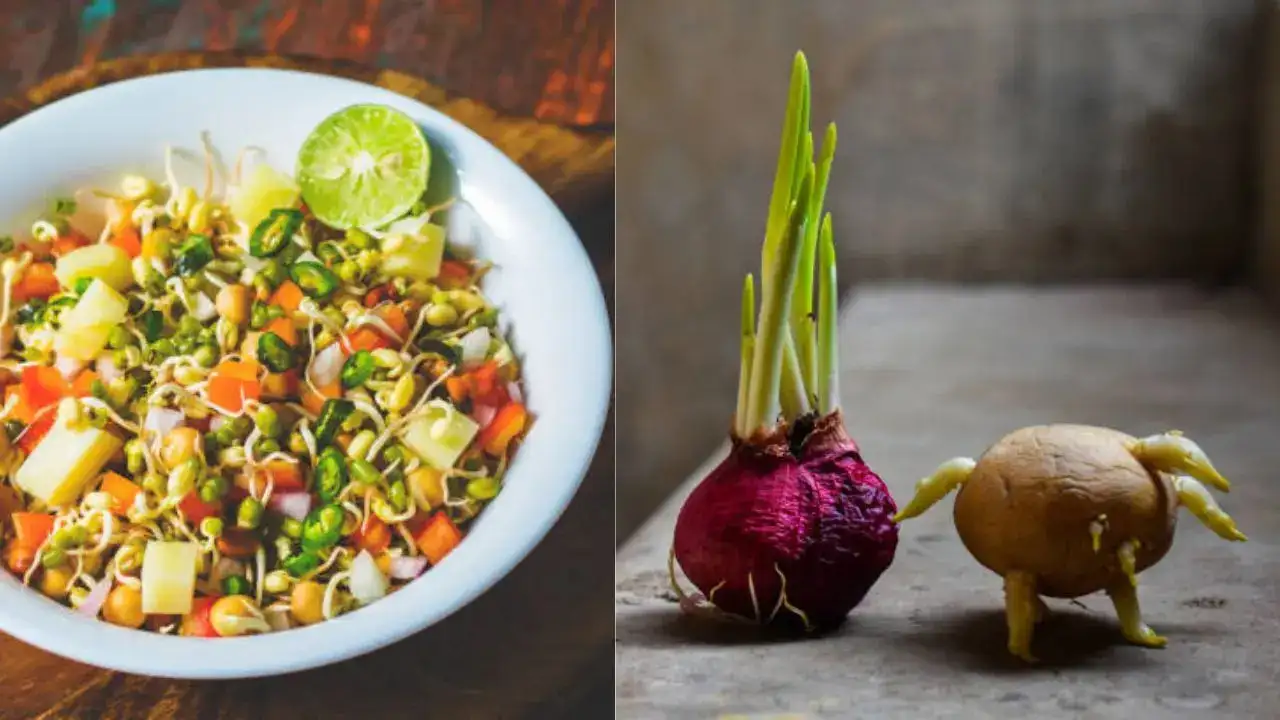
Raw or uncooked sprouts can cause various kinds of foodborne illnesses, especially in those with autoimmune disorders, children and elderly people
Sprouts are loaded with nutritional benefits—they provide lots of energy and are great for your overall health and well-being. You can eat them as a part of a healthy diet, as they are packed with proteins, fibre, vitamins A and C, calcium, potassium, and phosphorus—all the macronutrients your body needs daily. However, despite their positive reputation, experts caution against consuming certain sprouted vegetables, especially when raw.
What are sprouts?
Sprouts are seeds that have germinated and become very young plants. According to experts, the germination process usually begins with the seeds being soaked for several hours. The soaked seeds are then exposed to the right combination of temperature and moisture and allowed to grow for two to seven days.
The end product is generally a sprout measuring 1/8–2 inches (2–5 cm) long.
Why should you be cautious with raw sprouts?
According to doctors, raw or uncooked sprouts can cause various kinds of foodborne illnesses—especially in those with autoimmune disorders, children, elderly people, or those who have low immunity. Sprouts—even though they are nutritious—can be difficult for many people to digest.
If you have a sensitive gut, eating raw sprouts can also cause various symptoms of abdominal discomfort, bloating, gas, and changes in bowel movements—all of which range from diarrhoea to constipation. Apart from that, raw sprouts also carry a risk of contamination from harmful bacteria like E. coli.
According to doctors, if you are suffering from hemorrhoids or piles, you may experience aggravated symptoms due to the roughage and nature of raw sprouts.
Sprouted vegetables that you must avoid
Even though they are beneficial for your health, a few sprouted vegetables should be avoided or consumed with caution—especially when they are raw.
Onion
When onions begin to sprout - especially if they have an odd smell or have a mushy texture—you should avoid eating them. While some may mistake them for spring onions, sprouted onions are completely different in texture and can be unpleasant in taste and quality.
Garlic
Garlic begins to sprout when stored in unsuitable conditions. While they may not always be harmful, they do have a bitter flavour, which may not be palatable. Bluish or greenish sprouts also suggest the growth of mold, indicating that garlic should be discarded.
Potatoes
Potatoes, when sprouted, begin to produce glycoalkaloids like solanine - compounds that are extremely toxic and can lead to nausea, stomach pain, and severe diarrhoea. Sprouted potatoes also show green patches or soft spots and should be avoided.
Raw alfalfa sprouts
Alfalfa sprouts are nutritionally dense, but they should be stored under proper conditions to avoid contamination. If not kept properly, these can become a breeding ground for harmful bacteria, making them risky to consume raw.
Sprouted kidney beans
While they are legumes, sprouted kidney beans are also eaten in salads or as raw preparations. However, they contain phytohaemagglutinin - a toxin that can be intensified by improper sprouting. Consuming undercooked or raw sprouted kidney beans may cause severe digestive distress.
